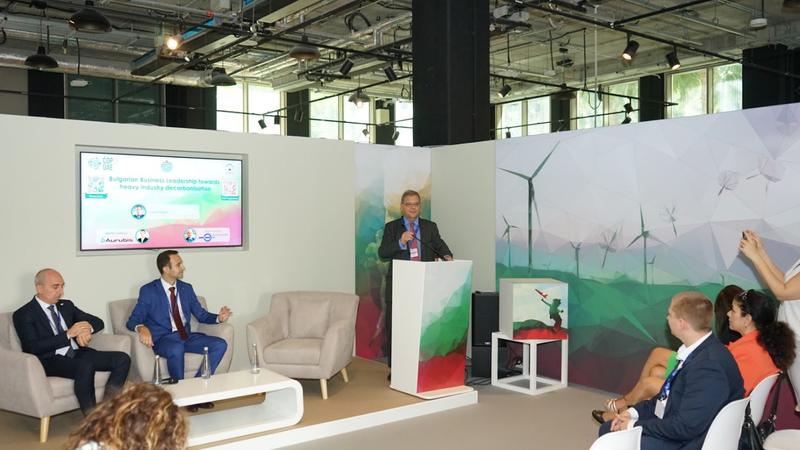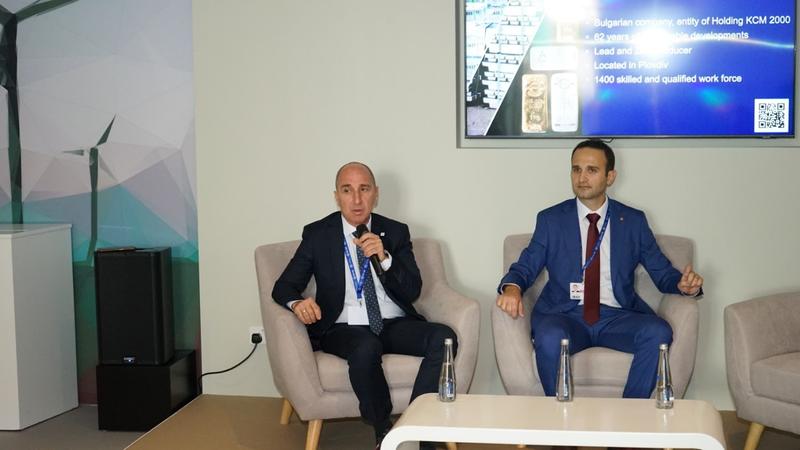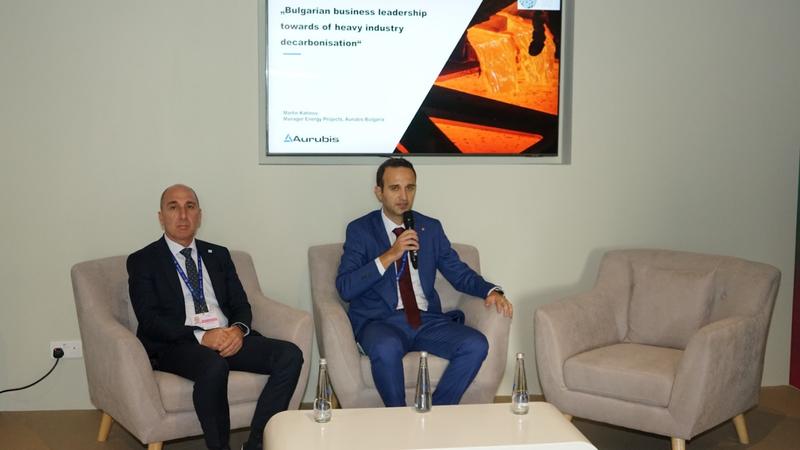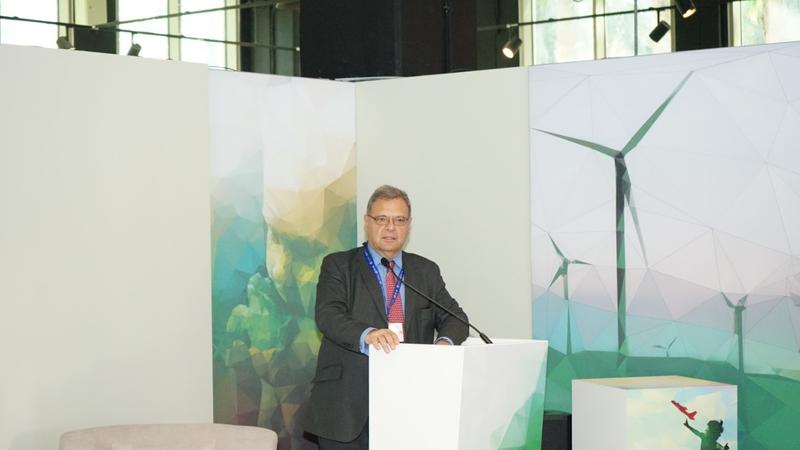The metalworking industry presented its successful experience in heavy industry decarbonisation at COP28
06 Dec, 2023 | 17:54Business achievements in decarbonizing heavy industry were presented by leading companies during a panel discussion on the topic hosted by the Ministry of Environment and Water during the COP28 climate conference in Dubai.
"Today we have a very interesting discussion about a sector that is usually singled out as a big source of emissions. The metalworking sector is energy and carbon intensive, it is usually very difficult to have emissions reduced. But it is also a sector that offers solutions," said Environment and Water Minister Julian Popov at the opening of the panel, which he also moderated.
The copper we produce is vital for the energy transition - for power lines, wind turbines, electric vehicles, storage systems and more, said Martin Katinov, Energy Projects Manager at Aurubis Bulgaria. The company is one of the largest electricity consumers in the country, with much of its production electrified. The next step is to cover this consumption with sustainable energy, from its own renewable energy sources as much as possible. We are working in three areas - diversification of energy resources with optimal use of solar, wind, water and waste heat; energy efficiency and replacement of high emitting fossil fuels first with gas and then with hydrogen, Katinov clarified.
Since 2015, the lead, zinc and other metals producer KCM 2000 Holding has managed to reduce its sulphur dioxide emissions almost fivefold through an innovative feedstock processing process, using the energy from the oxidation of sulphur instead of carbon for fuel. Thus, the energy from the oxidation of sulphur is used to melt raw materials, and the sulphur dioxide emitted in this process is converted into sulphuric acid instead of being emitted into the atmosphere, explained Ivan Dobrev, a member of the Board of Directors of KCM 2000 Holding.
The company also integrates lead and zinc production and recycles hazardous waste into useful and valuable materials. Lead and zinc are metals that also have an important role in energy transition. Zinc is used in the electroplating of photovoltaic panels and lead is applicable in lead-acid batteries that can be used for energy storage.



